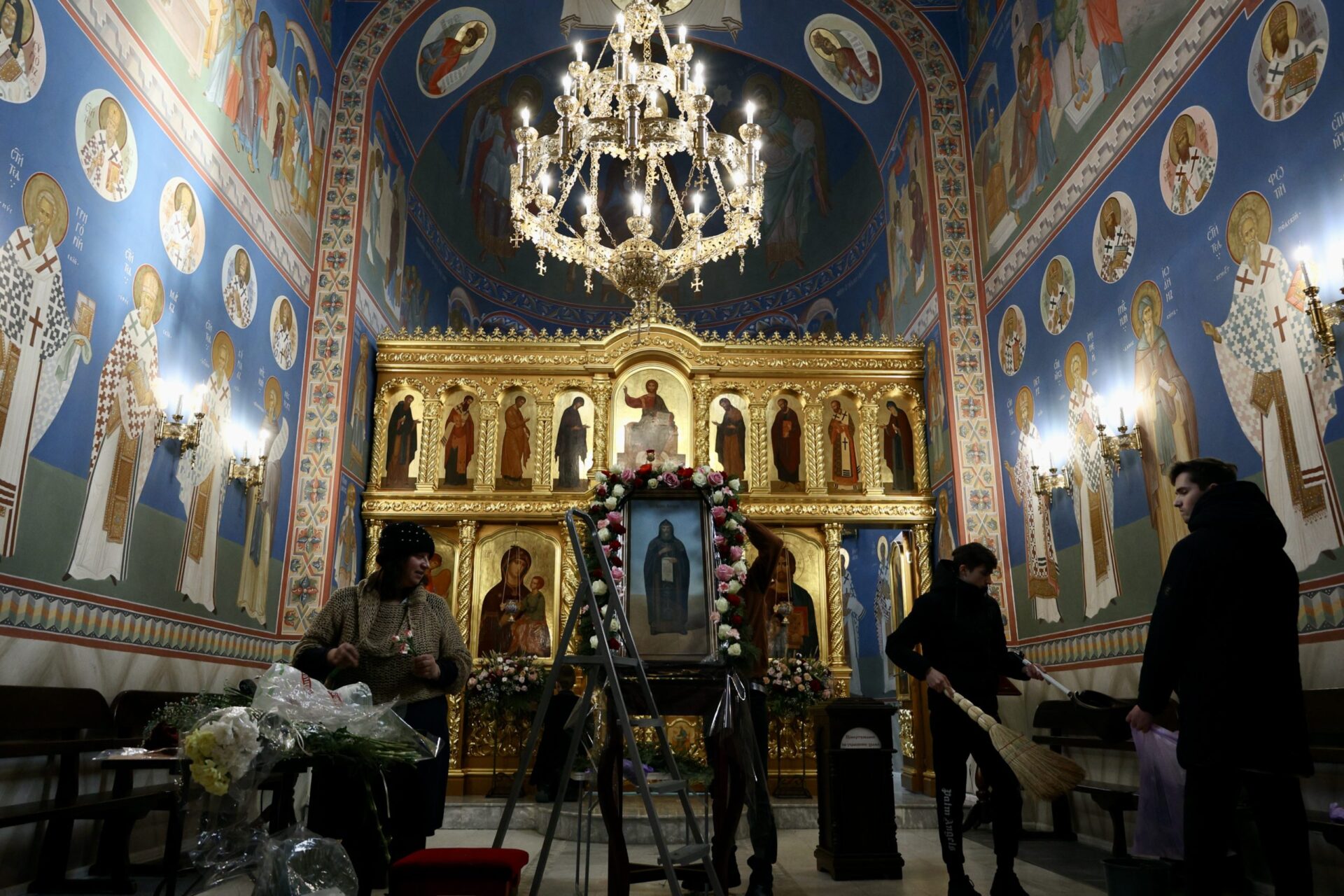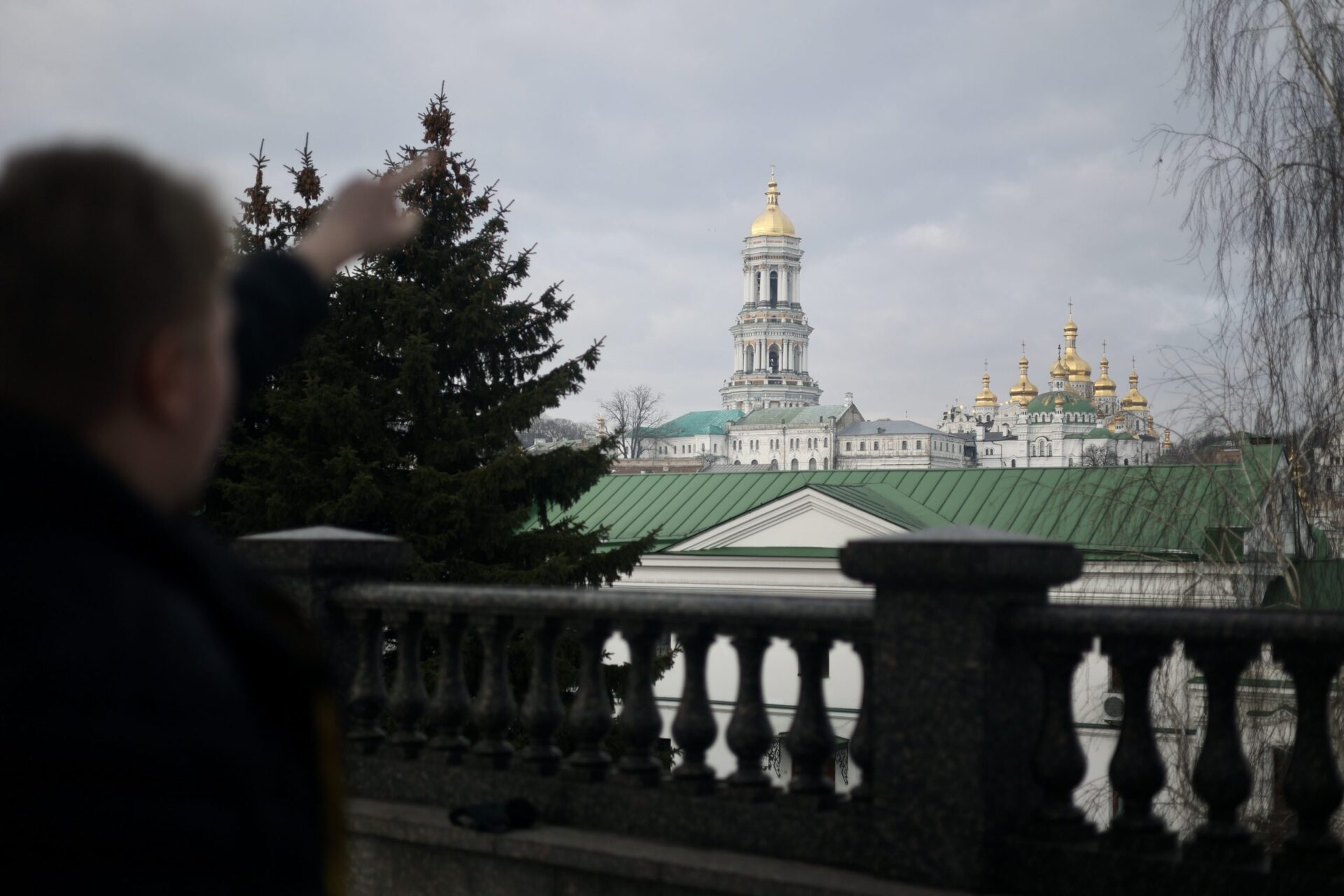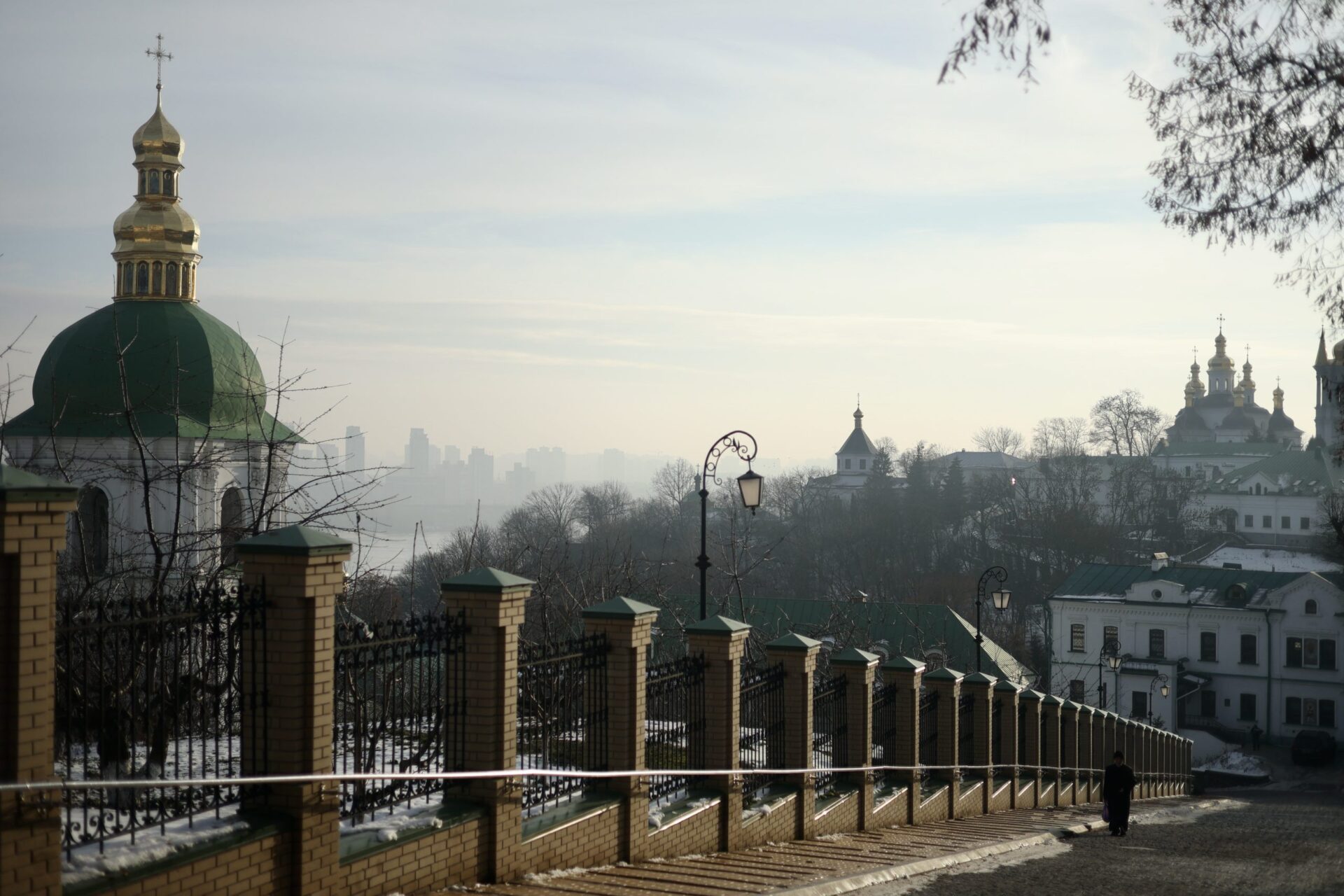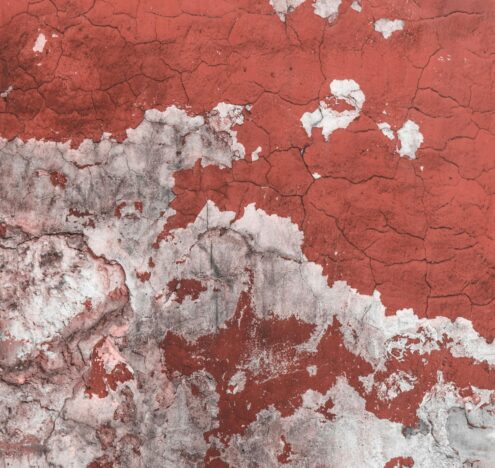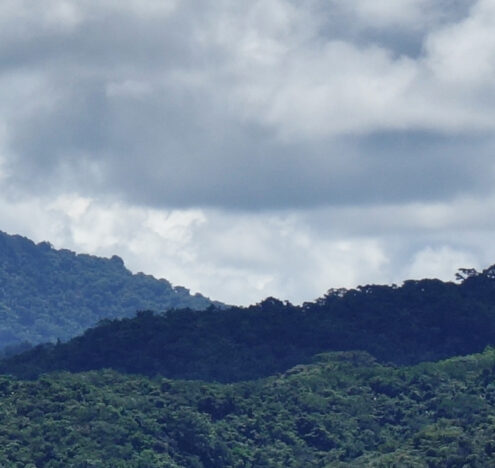Within the context of growing anti-Russian attitudes, the question of which day to celebrate the Christian holiday had become a hot topic issue by the end of last year. While an increasing number of Ukrainians were choosing to celebrate Christmas on December 25 — a date perceived as more in line with the West — Sergeev and Boshko intended to enjoy the holiday on January 7, the traditional Orthodox date in Ukraine when Russia also celebrates. While explaining their holiday plans, the conversation drifted to the controversy facing the UOC and clergy members who collaborated with Russian forces.
On Dec. 7, 2022, the Security Service of Ukraine reported that the rector of a parish in Lysychansk was sentenced to 12 years in prison after providing information and details about Ukrainian troop positions to Russian forces. The priest reportedly fled to Russian-controlled territory, though the Security Service of Ukraine said that efforts were underway “to bring the traitor to justice.” Other priests also suspected of collaboration have fled to areas controlled by Russia as well. The statement came a couple of months after the Security Service of Ukraine announced that it had opened nearly two dozen criminal proceedings into the “subversive activities” of 33 UOC representatives and amid numerous raids on church properties that have uncovered messages, Russian passports, and propaganda that officials cite as further evidence of collaboration with Moscow.
While expressing his support for Ukraine, Boshko sought to portray instances of collusion by UOC clergy members in a more nuanced light. “Sometimes our priests are accused of collaboration with occupied authorities,” he said. “We can see the different dimensions of collaboration. Is it collaboration when you say, ‘Oh, this is a Ukrainian nationalist, you should kill him.’ I imagine this is maybe not correct, but you say, ‘Oh, you should bomb this way and this building,’ because they hide some people of Ukrainian forces or something.”
Boshko argued that such actions weren’t indicative of support for Moscow but rather desperate attempts by priests to protect parishes and ensure the ongoing flow of aid. “This is collaboration just for ordinary people to survive,” he continued, “to supply them food, water, everything that we can.”
In a statement in November 2022, the UOC described reports of collaboration as “artificial accusations [that] are unproven and groundless.”
“Those bishops and priests who have stayed on the occupied territory of Ukraine and continue to carry out their pastoral service there are not collaborators,” the church wrote. “On the contrary, many of them are true heroes of the Ukrainian people. In the tough conditions that have emerged as a result of war, they have not left their flock. Risking their reputation, clergymen of the UOC do everything possible so that our Ukrainian people would survive where war destroys chances for human life.”
Historically dominant in eastern Ukraine, Boshko said that the church had leveraged its connections and reputation to deliver aid and supplies in territories captured by Russia. Since February 2022, the church had delivered 3,500 tons of humanitarian aid, 25 million hryvnias (just over $677,000), and 550,000 meals, Boshko said. The church has also donated ambulances, medical supplies, and blood for injured Ukrainian troops. “Those people, even Russians, they already know that we are helping those people on the frontline,” he continued. “People from both sides know our church and our priests and they allow us to come.”
With the war having displaced millions of Ukrainians, Boshko was apt to note that the church and its members have also been impacted.
“Some of them left their own parishes and are now in the other regions of Ukraine,” he said. “Some of them even left Ukraine and now are in the west of Europe and organizing parishes for our refugees.”
Between ongoing humanitarian aid and public comments of support for Ukraine and condemnation of the Kremlin, some experts describe instances of collaboration as the personal rogue acts of individuals rather than systematic church efforts.
“Yes, you have traitors, collaborators, people who cooperated with the Russians,” said Bremer. “But the church’s pro-Ukrainian stance is very clear.”
During our roughly hour-long conversation, Boshko acknowledged other instances of what some perceive as collaboration. But he continued to explain them away as pragmatic steps taken out of necessity.
“This is happening,” he said. “It caused some trouble for our church and some conflicts here in Ukraine. But I think that time will come and everything will be clear.”
Controversial Measures
In recent weeks, Ukraine’s government has announced a series of controversial measures seen by many as aimed specifically at the UOC.
During one of his regular nightly addresses on Dec. 1, 2022, Ukrainian President Volodymyr Zelenskyy announced a series of measures intended to ensure the “spiritual independence” of Ukraine.
“A meeting of the National Security and Defense Council was held today,” he said. “The meeting at which we considered numerous facts of connections of certain religious circles in Ukraine with the aggressor state.”
Religious experts also agree about the potential for the controversy to undermine unity, noting that Russia is likely to see it as a vulnerability ripe for exploitation.
The first measure entailed Ukraine’s National Security and Defence Council instructing the government to submit a draft law to parliament to ban religious institutes connected to Russia from operating in the country. The second called for a review of the UOC and its connections to Russia “and, if necessary, to take measures provided for by law,” while a third ordered a review of the legality of the church’s property leases. The fourth measure ordered national security bodies to bolster efforts to “counter the subversive activities of Russian special services in the religious environment of Ukraine.” And the fifth called for strengthening the capabilities of the State Service for Ethnopolitics and Freedom of Conscience to ensure that it can “really protect the rights and legitimate interests of the Ukrainians and the state.” Days later, the Ukrainian cabinet of ministers placed the body under its control and announced that local state administrations, “whose powers include the activities of religious organizations,” would become accountable to the State Service for Ethnopolitics and Freedom of Conscience. On Dec. 16, 2022, Ukraine’s government appointed Viktor Yelensky as head of the body, a scholar and expert in religious studies who has made critical comments about the UOC.
On Dec. 3, 2022, the Security Service of Ukraine announced the names of 10 sanctioned individuals associated with or close to the UOC charged with supporting or colluding with Russian authorities. “Most of them are currently in the temporarily occupied territories of Ukraine or abroad,” the Security Service of Ukraine noted in a statement. Several days later, seven more UOC associates or people close to the church were also sanctioned.
Just before New Year, Ukraine’s Constitutional Court approved amendments to national law requiring religious organizations in Ukraine that are affiliated with associations outside of the country to include the foreign institute’s name within its own, and to restrict the access of clerics of such institutes to the Ukrainian military. Whether the UOC will be required to change its name will come down to whether the Ukrainian church is determined to still be subordinate to the Russian church. Religious experts note that enforcing such a measure in practice — as well as banning the church, as some fear may happen — would be more complicated, as Ukrainian law views religious communities on the basis of individual parishes rather than a collective body. As such, a name change could require each individual parish affiliated with the UOC to change its name.
While the court deemed its ruling to be justified on the basis of precedence and protecting national security, the decision coupled with other government measures has raised concerns about possible infringements on religious freedoms.
“I’m in full solidarity with Ukraine, but solidarity means also to point out problems when you see them, and given that religious freedom is so important and that Ukraine has such a tradition of multi-religiosity and religious pluralism, I see a dangerous development in these things,” said Bremer.
Unity and Division
A few hundred meters down from the Holy Dormition Cathedral, Sergeev and hundreds of other UOC faithful crowded into the Church of Agapete Pechersky for Christmas service on Saturday.
At a time when many Ukrainians are more united than ever before, the 19-year-old student worries that the controversy surrounding the UOC could create division among Ukrainians.
“It’s like a big war,” he said. “We are trying to help our army, but this conflict just interrupts these efforts.”
Sergeev is not the only one worried about the effects of division.
Reverend Mykolay Danylevich, who regularly acts as the UOC’s spokesperson, raised similar concerns in a post on Telegram earlier this month, writing about one of the church’s parishes established in an unspecified European country over the summer being accused of ties to Moscow. He alleged that critics requested permission to protest against the parish but that it was denied by local officials.
“Where did these people get these ideas?” he wrote. “They didn’t come up with them themselves. For years, someone hammered into their heads this destructive ideology.” He continued: “This is the ideology that has been eating away at our people and dividing people for decades. And every year, and now every day, it sounds stronger. Is it necessary to divide our people like this?”
Religious experts also agree about the potential for the controversy to undermine unity, noting that Russia is likely to see it as a vulnerability ripe for exploitation.
“The Russian side already now makes use of the measures of the Ukrainian government and speaks about religious persecution,” said Bremer. “They say, ‘Our people… are persecuted in Ukraine. They are taking away churches, they have to change the name, they can’t celebrate liturgy anymore,’ and so on.”
As the faithful dispersed from the Monastery of the Caves on Saturday, going on to carol, hosting family meals, or partaking in other Christmas celebrations, Sergeev noted how the holiday, despite the controversy within the Orthodox community, had become even more special amid the war.
“Due to the war we celebrate Christmas even more valuably,” he said. “It’s very precious for us.”
All photos by Hunter Williamson, Dec. 23, 2022.
Cover image: People hang up decorations inside a cathedral at the monastery.














